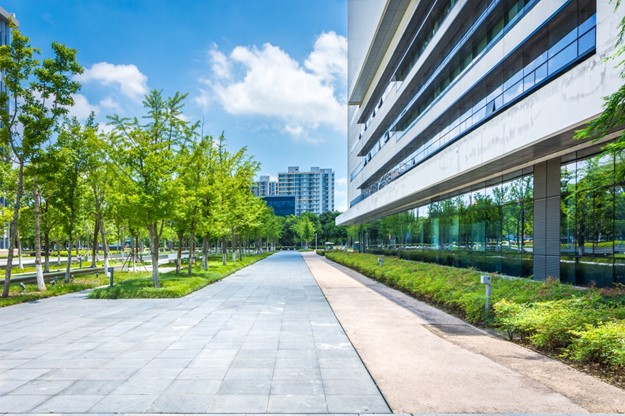The commercial real estate (CRE) sector is a dynamic and complex market, constantly influenced by global economic trends, technological advancements, demographic shifts, and societal changes. For investors, effectively navigating this landscape requires a deep understanding of these evolving trends. Chris Kamberis of Kansas City, a seasoned expert in CRE and the founder of CTK Real Estate, emphasizes the importance of being aware of these trends as an investor. This article explores the key trends in commercial real estate, offering insights that reflect the expertise and experience of Chris Kamberis.
E-Commerce and Its Transformative Impact on Retail and Industrial Spaces
The unstoppable rise of e-commerce has fundamentally transformed the entire landscape of retail real estate. Traditional brick-and-mortar stores are grappling with the challenges posed by the increasing preference for online shopping. This shift has led to the decline in demand for traditional retail spaces while simultaneously sparking a significant rise in the need for industrial spaces, particularly warehouses and distribution centers.
Investors should consider the potential of properties that are strategically located near transportation hubs or those that can be repurposed into fulfillment centers. Additionally, there’s a growing trend of converting retail spaces into experiential centers, focusing on services and experiences that cannot be replicated online. Kansas City, where CTK Real Estate is based, sees a trend in repurposing retail spaces for online shopping needs, aligning with Chris Kamberis’s observation of the evolving retail environment.
Remote Work Revolution and the Future of Office Spaces
The pandemic-induced shift to remote work has raised questions about the future of office spaces. Businesses are rethinking their office space needs, leading to a trend toward flexible and smart office designs. These spaces are equipped with technology to support hybrid working models and hot-desking.
For investors, this trend indicates a shift in preference towards office properties that can offer adaptability and high-speed internet while encouraging collaboration and innovation. Investment in office properties may now require a focus on quality over quantity, with a premium placed on well-located, well-connected, and technologically advanced office spaces.
Sustainability: A Key Driver in Property Investments
Sustainability in commercial real estate has moved from a niche interest to a mainstream demand. Properties that are environmentally friendly and have sustainable features are increasingly favored by tenants and investors alike. Energy-efficient buildings, green certifications, and sustainable construction practices are not just beneficial for the environment, but also cost-effective in the long run due to lower operational costs.
Investors are increasingly recognizing the long-term value and risk mitigation offered by sustainable properties. This trend is bolstered by regulatory changes and increasing awareness of environmental issues among consumers and businesses.
The Popularity of Mixed-Use Developments
Mixed-use developments, which combine residential, commercial, and sometimes even industrial spaces, are thriving. They cater to a modern lifestyle that values convenience, accessibility, and community living. These developments are particularly attractive in dense urban areas where space is at a premium and in suburban areas where there is a desire for more integrated communities.
For investors, mixed-use properties can offer diversified income streams and greater resilience against market downturns. They also present opportunities for creative development and community building.
Demographic Shifts Influencing Real Estate Needs
The changing demographic landscape is having a profound impact on real estate needs. An aging population is driving demand for senior living facilities and healthcare-related real estate while, on the other end of the spectrum, millennials and Gen Z are influencing the market with their preferences for co-living spaces, amenity-rich apartments, and urban living.
Understanding these demographic trends is crucial for investors. Properties that cater to these specific needs are likely to see increased demand and can offer unique investment opportunities. Chris Kamberis’s insights into these demographic shifts guide CTK Real Estate in identifying promising investment opportunities in Kansas City and beyond.
The Rise of Proptech and Its Impact on Real Estate
Technology is rapidly transforming the real estate sector. Property technology, or ‘Proptech’, encompasses a wide range of applications, from advanced property management software to AI-driven analytics for investment decisions. Virtual and augmented reality technologies are enhancing the property viewing and buying experience, making it remarkably efficient and accessible.
Investors need to be aware of these technological advancements because they can significantly impact property values, tenant preferences, and the overall market dynamics. Embracing technology can provide a vital competitive edge and open up new avenues for investment and growth. With his extensive experience, Chris Kamberis understands the impact of technological advancements on property values and market dynamics. CTK Real Estate leverages these technologies to stay ahead in the Kansas City CRE market.
The commercial real estate market is in a state of flux, with multiple trends constantly reshaping the landscape. For investors, staying informed and adaptable is crucial. The insights of Chris Kamberis, a leading figure in Kansas City’s CRE market and the founder of CTK Real Estate, provide valuable guidance for investors. By understanding these trends and their implications, investors can position themselves to capitalize on new opportunities and navigate the challenges presented by this dynamic market. As the CRE sector continues to evolve, strategic, informed decision-making will be key to successful investment in commercial real estate.








